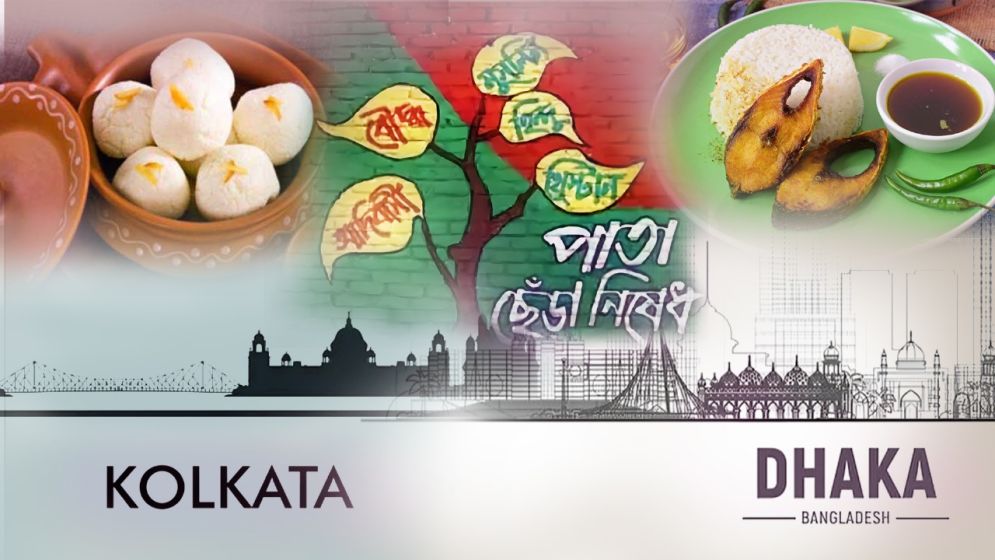Identity politics and the Bengali–Bangladeshi dichotomy is essentially a cloak for suppression…here is why

For decades, Bangladesh has been ensnared in an agonizing paradox: Bengali by language, Bangladeshi by statehood.
Yet, this isn't merely a semantic squabble; it's a profound crisis of sovereignty, self-respect, and a perpetually deferred struggle to forge a national identity unmarred by external dictates or internal discord.
Bangladesh's political elite, comprising its two dominant factions and their hangers-on, have deliberately trapped the nation in a suffocating web of stale, divisive binaries.
"Freedom fighter" versus "razakar." "Pro-liberation" versus "anti-liberation." "Pro-India" versus "pro-Pakistan." These were never blueprints for national progress. They were, and remain, instruments of political control, designed to cement power, criminalize dissent, and stifle the emergence of a genuine, people-first political consciousness.
What has been conspicuously absent, always, is a pro-Bangladeshi narrative–one grounded in the lived realities and aspirations of its citizens, not the lingering specters of 1947 or 1971.
This manipulation is most glaring, and most damning, within our education system, a tool long weaponized for partisan agendas. One regime rewrote history to align with India's ideological whims; the next crafted its own selective, self-serving narratives.
Books containing uncomfortable truths were summarily banned. Generations of Bangladeshis were reared on slogans instead of history.
Consequently, political discourse, whether in bustling tea stalls or on the sprawling battlegrounds of social media, has devolved into a cacophony of inherited half-truths, where victory goes not to the informed, but to the loudest voice or the largest bot army.
This same compromised system has abjectly failed to equip its citizens for a modern, competitive global economy. Denied critical analytical training, linguistic fluency, and essential technical skills, countless Bangladeshis are condemned to menial labor in the Middle East and Southeast Asia.
Their remittances, a lifeline for the very economy that failed them, prop up a system that actively undermines their potential. Meanwhile, better-educated Indians effortlessly occupy white and blue-collar positions within Bangladesh, siphoning off income through informal channels.
Corporations like Adani only twist the knife deeper, selling grossly overpriced electricity to the families of these very migrant workers.
The healthcare sector mirrors this grim reality: billions are funneled abroad as domestic hospitals remain unsafe, mismanaged, or riddled with corruption. Our national wealth hemorrhages outward while our leaders squabble endlessly over their hollow legacies.

Exposure of the fracture
This structural rot became painfully visible with the fall of the Hasina regime, unleashing an immediate and venomous propaganda blitz from New Delhi.
As Indian media outlets smeared Bangladesh with distortions, Bangladesh mounted no coherent defense. The nation, despite having an abundance to say, found itself crippled by a severe deficit in language skills, media savviness, and international credibility.
Decades of deliberate educational sabotage had rendered its citizenry incapable of defending its own narrative. Meanwhile, a complicit pro-India elite sat quietly in New Delhi, applauding the spectacle, utterly devoid of dignity or loyalty to their own nation.
This wasn't merely a media failure; it was the logical outcome of ideological colonization masquerading as policy.
What Bangladesh desperately needs is a new identity–one forged from its own blood, faith, and soil. Eastern Bengal, a predominantly Muslim region, must unequivocally embrace its unique historical and cultural trajectory.
While language is undeniably important, it cannot be a leash that drags Bangladesh back into Kolkata and most importantly New Delhi’s cultural orbit.
The 1971 war, a moment of immense national sacrifice, birthed an uneasy compromise: in exchange for Delhi's support, the Awami League deliberately downplayed Islamic identity, adopting a brand of secularism meticulously tailored for Indian approval.
The result was a hybrid culture–neither spiritually authentic nor politically sovereign.
This arrangement, while seemingly suiting Bangladesh’s Hindu minority–who had long faced marginalization under Pakistan–left the vast Muslim majority adrift. Religious expression became inherently suspect, and secularism was often falsely equated with allegiance to India.
Today, a Bangladeshi citizen embracing their faith risks being branded an extremist, while one adopting secular values is immediately perceived as pro-India.
The Hindu minority, meanwhile, enjoys an almost complete narrative immunity, perpetually framed as victims or cultural custodians. This profound imbalance actively obstructs the formation of a sovereign identity that empowers all citizens without privileging any one group.
Across the border, West Bengal endures a mirrored tragedy. Despite its substantial Muslim population, the state is economically penalized by the BJP-led central government for its political disobedience.
It has suffered significant trade losses with Bangladesh since August 5th [referring to the abrogation of Article 370, which impacted regional dynamics, though a specific trade loss figure with Bangladesh directly tied to this date would require further substantiation].
Delhi’s media machine–from Republic TV to Aaj Tak Bangla–relentlessly inflames communal tensions, shamelessly sacrificing minority dignity for electoral gain.
This orchestrated chaos ensures that Bengal remains perpetually divided–perhaps linguistically linked, but psychologically fractured.

Commonalities should prevail over
differences
If erstwhile Bengal's two fractured halves–West Bengal and Independent Bangladesh– ever hope to thrive, they must shed Delhi’s manipulative grip.
The shared language and culture ought to be bridges, not battlegrounds. Hindus and Muslims must finally recognize each other as cohabitants of the same civilizational space.
Should this reconciliation prove impossible, then Bangladesh–and especially its Muslim majority–must forge ahead independently, utterly unshackled by Delhi’s soft and hard coercion.
It must rewrite its own history, on its own terms, celebrating resistance against British colonialism, Pakistani authoritarianism, Indian hegemony, and its own homegrown fascists alike.
Such a vital retelling must honor the true heroes of each era, as complex human figures whose profound contributions and undeniable flaws can coexist rather than flawless icons.
Only then will their legacies endure, untarnished by the cynical political maneuvers of parties that merely claim their names. Without this, Bangladeshis will remain mere characters in someone else’s narrative, ridiculed from behind Delhi’s power corridors.
This urgent need has organically birthed a second-generation political movement in Bangladesh–one not predicated on legacy worship, but on a renewed citizen-state contract.
So, governance must be judged by how competently it solves the pressing problems of today. Healthcare, education, economic dignity, and robust defense capabilities are not luxuries; they are the bare minimum.
The public no longer seeks mythology; it demands reform where healthy institutions can finally thrive.
Only through such a profound reawakening can the pervasive fog of confusion–a fog carefully crafted and maintained by Indian hegemony–finally be lifted.
This hegemony has relentlessly exploited both facets of Bengali identity, manipulating Hindus and Muslims with equal cunning. Only by severing this insidious psychological cord can Bangladeshis cease mistaking obedience for diplomacy and erasure for compromise.
The time for ethnic Bengalis on both sides of the border to reclaim their agency is now. They must either unify through shared culture and mutual respect, or decisively walk separate paths, each defined by their own distinct realities.
But above all, they must stop being used. Whether by Delhi’s Gujarati strategists, Punjabi generals, or Maharashtrian propagandists, Bengalis must absolutely refuse to play into scripts not written by them.
Only then can true dignity return. Only then can genuine sovereignty begin.
—-
Arif Hafiz is a political analyst, cultural critic, and independent columnist.

